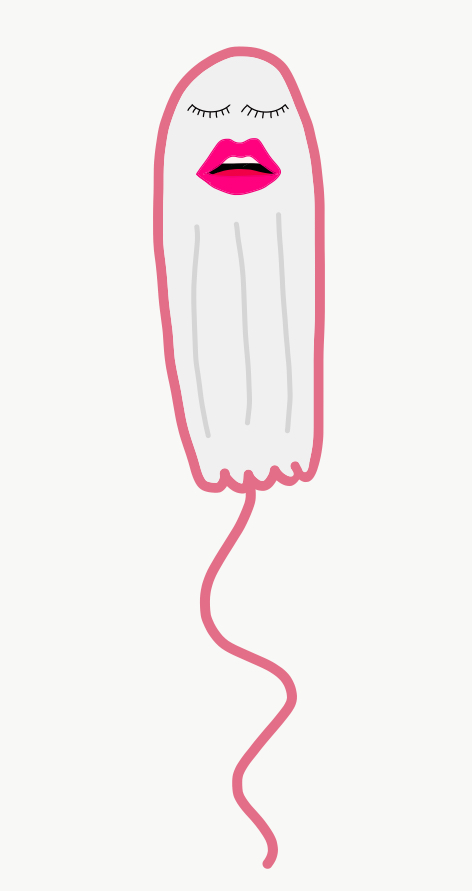Periods – Not the Punctuation Mark
December 10, 2021
What do you think of when you hear the word ‘period?’ Zoey Buchan ‘22 says, “Umm the punctuation? Just kidding. I don’t know, once a month, time of the month.” Similarly, Alex Wear ‘23 states, “I think of punctuation.” All humor aside, menstruation carries a stigma that prevents people from having conversations about periods. Nancy Guah ‘23 addresses the simpler side of the stigma saying, “If a bloodstain comes, you don’t talk about it.” Laura Thangi ‘24, a period advocate, describes the general population saying, “They’re still afraid to be talking about it.” So let’s talk about it.
First, let’s take a look at why students and staff think these conversations are kept on the down-low. Women’s Cross Country Coach and government teacher, Patrick Hennes, thinks that the stigmatization of periods likely traces back centuries to the formation of functioning societies. He says, “It doesn’t seem like something that happens to half of the world’s population once a month should be something that has that much of a stigma associated with it.”
Buchan, however, acknowledges why such a stigma may surround menstruation. She says, “It is kind of a little gross. I could understand how guys wouldn’t get it.” Wear is a testament to Buchan’s point. He states, “I think there’s a time and a place. ( . . . ) It shouldn’t just be like you’re at lunch and you’re talking about it.”
Kenna Shannahan ‘23 unapologetically talks about her period. She says, “I ran into someone, and I was like, ‘Oh my God, my tampon.’ And they were like, ‘uh TMI.’ And I’m like, ‘No, it’s normal!’” Shannahan traces the disgrace associated with periods to what is and is not considered suitable for children. She says, “When you’re younger it has to do with, like, being appropriate. And I think when you were younger maybe not talking about blood coming out of your vagina is appropriate.” Whatever the cause of the stigma, menstruation affects many students, and this is what they have to say of the good, the bad, and the bloody.
Heidi Nimmo ‘23 describes her first period at gymnastics practice, saying, “I was like doing routines, and ( . . .) you could definitely see the stain through [the leotard.] So that was kind of embarrassing. No one told me, but I knew I did.”
Trinity Nwizu ‘23 experienced a similar situation while she was in PE. She says, “I literally had jeans on, and I didn’t know my period was coming. And I bled through my jeans. I had, like, a flannel on, so I took it off and tied it around my waist and everything, but I was still jumping and everything. So I feel like it flipped up and somebody saw.”
Nancy Guah ‘23 shares a relatable experience for people who deal with heavier periods. She says, “The period was crazy bad. I was like ocean. It would not stop.” Guah also shared what a regular conversation about her period might sound like. “You just talk about it a lot like, ‘damn, my butthole hurts.’ ( . . . ) Sometimes you’ll find your period twin and be like, ‘When’s your period so I know when mine [is?]’” These conversations are typical among people who are unafraid of talking about periods.
Periods affect learning. They come when they please and don’t leave just because of an important upcoming event. Shannahan attests to this, saying, “If I’m super busy with, like, sports or just like school or work (…), I obviously don’t wanna be on it because then that’s just another thing to think about.” Many people can relate to this frustration and annoyance. Packing period products for school, work, athletic, or social events is just another item on many students’ already extremely long to-do lists. Dealing with the physical discomfort and emotional stress that periods cause is another difficult aspect of being a functioning member of society while menstruating.
Thangi shares some difficulties she has faced when she needs to change a menstrual product during class. She says, “A lot of the male teachers, they’re always like, ‘can you wait a little bit?’ And it’s like, ‘not really.’ It’s not really like something you can control.”
To Thangi’s point, it is pertinent to vaginal health that menstrual products are removed in a timely fashion. Leaving a tampon in for longer than eight hours is extremely risky. While it is especially rare, prolonged exposure to the bacteria that tampons collect can result in a serious and sometimes deadly infection called toxic shock syndrome. Thangi says, “It’s not like you’re just going to sit there ( . . . ) in like a pile of blood.”
She is also frustrated that you have to pay for most period products offered at school. Thangi claims that the products offered, free of charge, are typically of poor quality. She believes menstrual products to be a necessity and wishes to see an increase in the quality of these products. She says, “You’re not making anyone pay for, like, toilet paper in, like, bathrooms.”
Whether you have a period or not, many people at our school do. Therefore, we must implement solutions to address the challenges that people with periods face both in and out of school. Solutions, such as developing a universal-understanding of the emotional support that a person on their period may need or providing period packs similar to the ones in a few classrooms, can be administered as well. The stigma that is associated with periods must be dismantled in order for these resources to be provided. How should you do that? Talk about it. Period.






